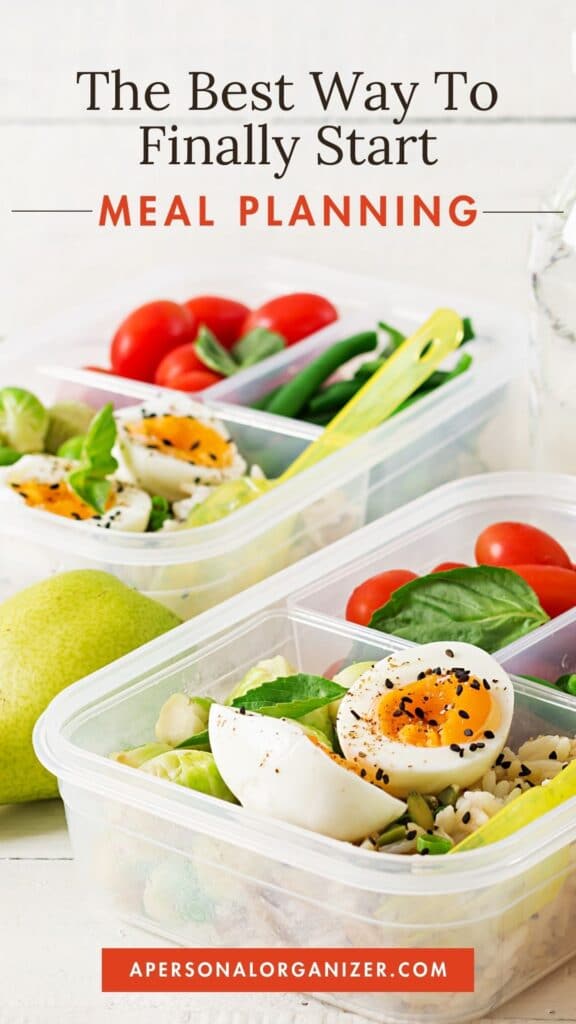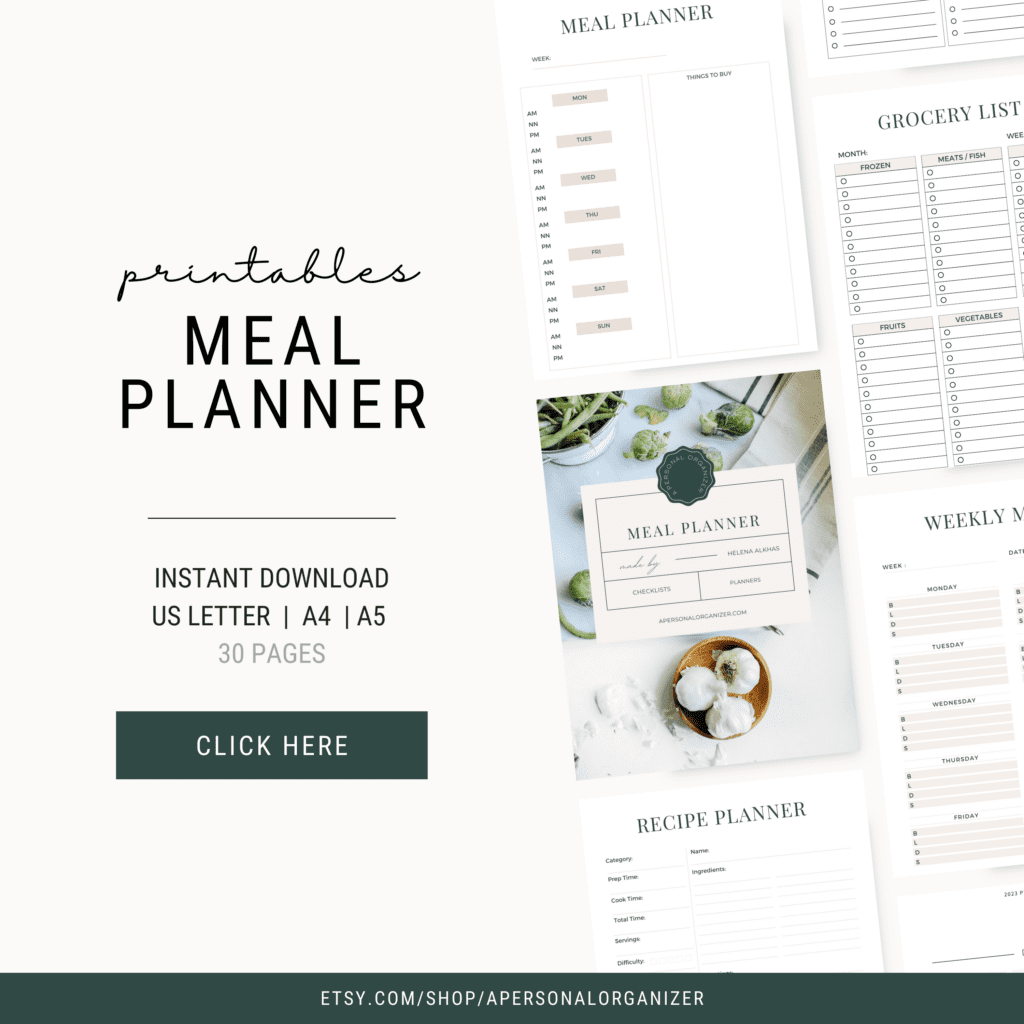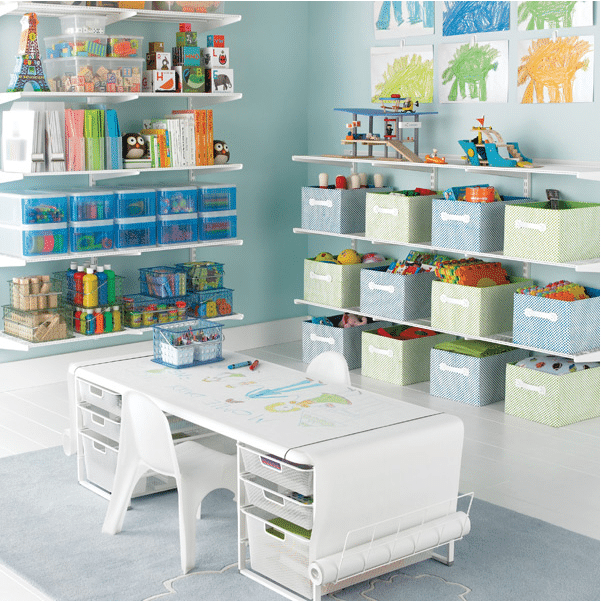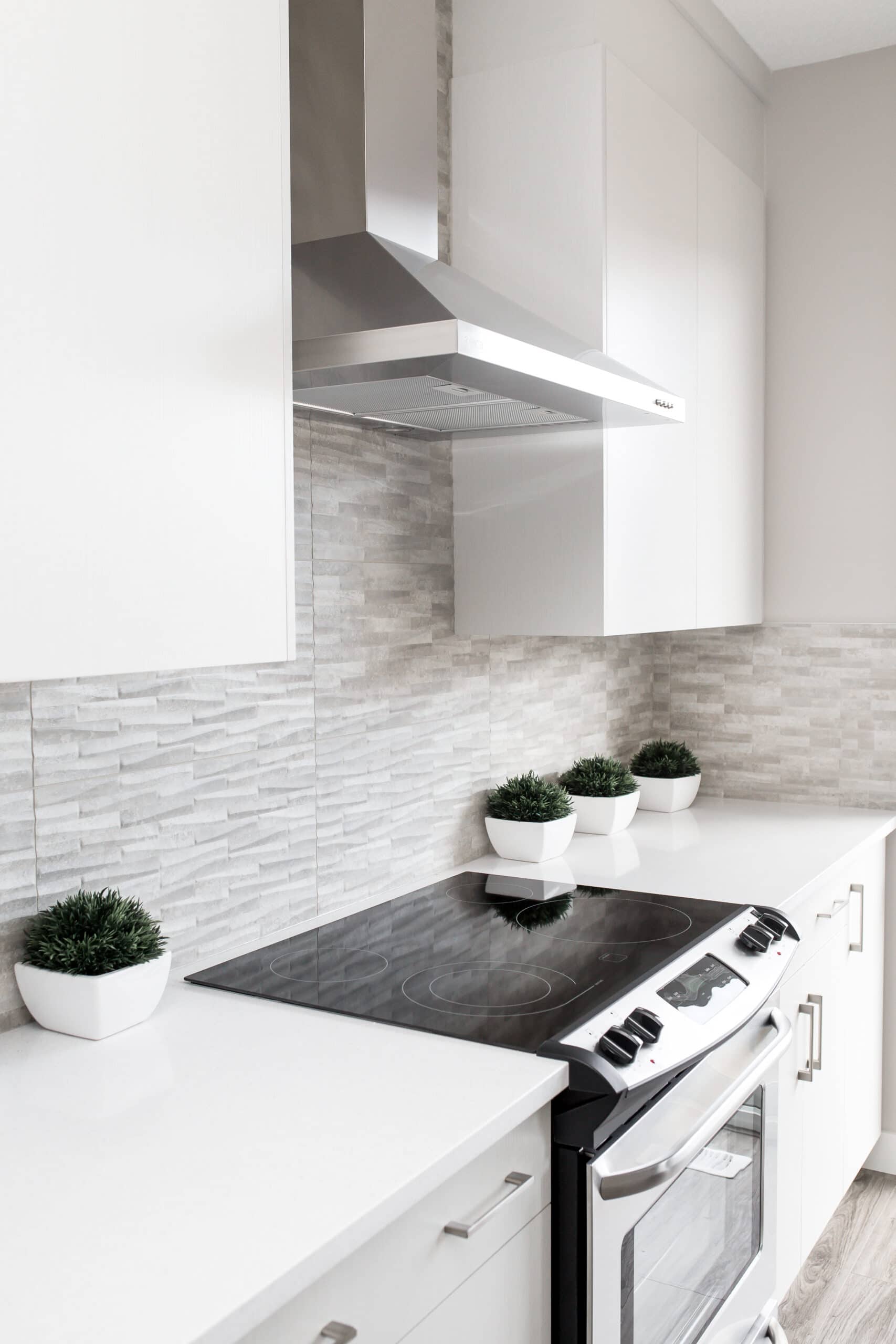Meal planning isn’t easy for most of us—at least it wasn’t for me and most of my clients.
Are you one of those people who doesn’t know what they will cook for the family after a busy day at the office? You are not alone.
Many active people often end up asking themselves, “What’s for dinner?” most weeknights. Dinner ends up being something ordered in, out of a can, expensive, unhealthy, or something sitting in the fridge for over a week.
However, with a meal plan at hand, you will always know what’s on the table, save money, time, and energy, and serve your family healthy and nutritious food.
If you have never tried menu planning or have been unsuccessful before, this quick and easy meal planning guide will help you get started.

What is a meal plan, and why should you have one?
A meal plan is a detailed plan of what you will cook for yourself/the family for every meal (breakfast, lunch, and dinner) throughout a specific period.
With a meal plan in place, you save time and money. You also make fewer trips to the grocery store, make use of all the ingredients in your pantry and fridge, and eat healthier.
Most importantly, some are never left wondering what to cook for the next meal.
Our meal planning tips are so simple that you can immediately start incorporating them into your weekly routine.
Make a list of meals that you love
The best part about menu planning is making a list of all the foods you would love to eat.
Categorize each dish into breakfast/lunch/dinner so that you end up with three long lists of all the breakfasts, lunches, and dinners you would like to eat. Make the lists as long as you want.
If you are cooking for your family, then get them to include their favorite dishes and what they would like to eat during the week in your lists.
Make a menu for the week
Some people make meal plans for a day; others make a meal plan for an entire month. But the most successful meal plan is one that spans a week.
That’s not too short or too long a period. Once you get proficient with planning your meals for a week, you can extend your meal planning for two weeks.
Your plan for the coming week is best done over the weekend. Plan out your meals for seven days using your list of favorite meals.
Simply choose seven breakfasts, lunches, and dinners you would like to eat during the following week.
Consult your calendar
Your schedule will most likely vary from one week to the next. So, consider your week’s schedule when planning your meals for the week.
Do you have a meeting at 9 a.m. on Tuesday? Then, ensure your Tuesday breakfast is something you can put together really quickly—it could even be a banana and an apple.
There’s something else you must consider during meal planning – your pantry.
That’s the next step.
Check out what’s in your pantry and refrigerator
When considering what dishes to cook during the meal, look at what you have in your fridge, freezer, and pantry.
Choose recipes that incorporate ingredients you already have in your pantry and fridge. That way, you use what you already have, waste less, buy less, and make room for fresh items.
Make a list of ingredients and schedule a shopping day
Make a list of all the ingredients you will require to prepare the dishes – mains, sides, and desserts – on your menu.
That could include things like meats, pasta, vegetables, and spices. Make a shopping list of all the ingredients that you don’t have.
Consult your recipe cards if you are unsure about the ingredients you will need. That way, you won’t be making a second trip to the store midweek.
Next, categorize the ingredients to match the layout of your grocery store. That will save you a lot of time at the grocery store.
Stock up on essentials your pantry is running low on to make meal planning and cooking less intimidating.

Prep your meals ahead of time
Weekend preparation can save you time during the week. Some advance prep work that can be done on the weekend include:
- Chopping vegetables
- Moving meat from the freezer to the fridge a day in advance
- Making a batch of meatballs and freezing them up.
- marinating meats
All that can help put together a meal on a weeknight quicker and much more straightforward.
Finally, stick with your plan but accept unexpected diversions. For example, there may be leftovers that you might carry over from one meal to the next. Or, you might decide to make something different because you have an unexpected dinner guest.
That could mean a slight change in your plan, and that’s okay.
Happy menu planning!
Meal planning can take some getting used to, but it is guaranteed to make your life so much easier, make meal preparations more fun, and help you save tons of time and money. Plus, cooking your meals ensures you and your family eat healthier.
Organizing Planners
Meal Planner
Simplify your meal planning with our Printable Meal Planner, designed to streamline your weekly menus, recipes, and grocery shopping.













